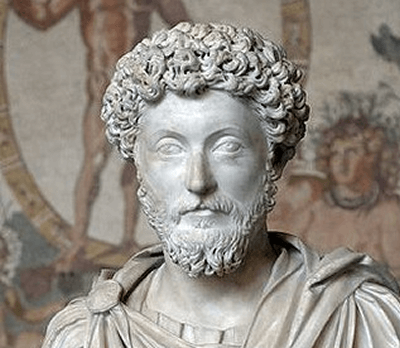Who and What Were the Five Good Emperors of Rome?
The period of time ranging from Nerva to Marcus Aurelius has been generally referred to as that of the '5 Good Emperors.' While the definition of 'good' is always subjective, there is little argument that this period provided the greatest stretch of uninterrupted power and prosperity for the Roman state.
Perhaps more appropriately, these Roman emperors should be known as the 'Adoptive Emperors' because this in itself is an indication of the 'good'. As each was adopted from among the best available candidates, rather than direct hereditary lineage (though there was some relation), it helped ensure that Rome was in the most capable hands.
Though the Roman population as a whole may have noticed little relative difference in the period from Augustus to Domitian, the '5 Good Emperors' offered a century of consistency without the interruptions of Caligula, Nero and Civil War.
Perhaps the eloquent words of Edward Gibbon, the 18th century historian who penned 'Decline and Fall of the Roman Empire', describe the period best. Despite being limited in comparing the Romans to the human condition only through the 18 century, and lacking the great advancements of the 19th and 20th centuries, Gibbon's words describe 2nd century AD Rome as perhaps the greatest time of all for humanity:
"In the second century of the Christian Era, the empire of Rome comprehended the fairest part of the earth, and the most civilized portion of mankind.
The frontiers of that extensive monarchy were guarded by ancient renown and disciplined valor. The gentle but powerful influence of laws and manners had gradually cemented the union of the provinces. Their peaceful inhabitants enjoyed and abused the advantages of wealth and luxury.
The image of a free constitution was preserved with decent reverence: the Roman senate appeared to possess the sovereign authority, and devolved on the emperors all the executive powers of government.
During a happy period of more than fourscore years, the public administration was conducted by the virtue and abilities of Nerva, Trajan, Hadrian, and the two Antonines."
"If a man were called to fix the period in the history of the world, during which the condition of the human race was most happy and prosperous, he would, without hesitation, name that which elapsed from the death of Domitian to the accession of Commodus.
The vast extent of the Roman empire was governed by absolute power, under the guidance of virtue and wisdom. The armies were restrained by the firm but gentle hand of four successive emperors, whose characters and authority commanded involuntary respect.
The forms of the civil administration were carefully preserved by Nerva, Trajan, Hadrian, and the Antonines, who delighted in the image of liberty, and were pleased with considering themselves as the accountable ministers of the laws.
Such princes deserved the honor of restoring the Republic, had the Romans of their days been capable of enjoying a rational freedom."
Following the death of Domitian, an effective but reviled leader among the aristocracy, Rome was fortunate to find a stabilizing force in Nerva. A respected senator, Nerva filled the potential power vacuum, and set the tone for the next century during his short but precedent-building reign.
The great military general Trajan followed Nerva, and not only re-established Rome as a conquering force, but established his greatness among scholars as perhaps second only to Augustus.
Hadrian and Antoninus Pius were among the best of administrators, and Marcus Aurelius (as well as the sometimes forgotten Lucius Verus) continued that pattern while re-establishing military superiority among the bordering Germanic tribes.
The period would come to an end amidst plague and the weariness of war with the death of Marcus Aurelius in AD 180. As his son Commodus ascended the throne as sole emperor, thus ending the period of 'adoptive' authority, the stability and cohesiveness of the previous era would begin to unravel.
The Five Good Emperors of Ancient Rome:
Please click on a name below to find out more about that particular emperor:




